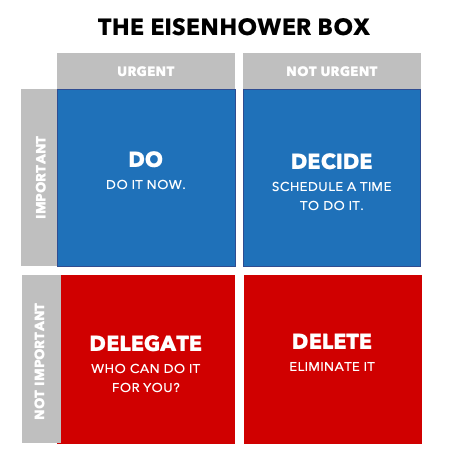Lolly Daskal's Blog, page 76
September 5, 2019
10 Phrases That Will Help You Handle a Micromanaging Boss

If your boss is a micromanager—the kind who wants to maintain as much control over you as they can—you know how frustrating and irritating it is. It’s possible, though, to take back some control—and these phrases can help you make that happen. Use them to start an effective dialogue that can result in more autonomy and less micromanagement:
I’m going to do everything in my power to make you look good. If you tell your boss you want to make them look good, there is no reason for them to hound you. Accustomed to resistance, most micromanagers will be glad to hear something positive.
Your success is important to me. Feed the ego of your micromanager and let them know their success matters to you. Their controlling tendencies are likely to ease if they believe your mind is on them—as they want it to be.
Tell me how you like the work to be done. You may be able to circumvent a hovering micromanager by getting all the information up front. It will help you do the job you are supposed to do while also meeting their expectations.
I will do an excellent job for you. When you reassure a micromanager about the quality of your work and show them that excellence is important to you, you may be able to put their perfectionist mind at peace.
I know you want to help me succeed. Disarming a micromanager is important, and labeling their negative action into something positive may have them agreeing with you. Thank them and let them know you appreciate their investment. The recognition will make them feel good about themselves and it may help them give you some peace.
I value your guidance. This is another way of disarming the micromanager with a positive twist. If you acknowledge their counsel, you may be able to persuade them that you will come to them when you need them.
You sometimes know things about the situation that I don’t. This phrase feeds the micromanager’s ego and lets them know that you acknowledge their higher position and that you’ll check in when you need to know more.
All the hovering, adjustments and changes are affecting my productivity. If nothing else is getting through, tell the truth and be straightforward. Leaders are measured by how much their team achieves. They know that productivity issues reflect poorly on them.
I am going to show you how I do it on my own. Give the micromanager a rest by walking them through your own processes, showing them your competence and care.
I am always open to your feedback. Holding yourself open for your micromanager to teach, guide, and mentor can help keep your work relationship on the plane where it belongs.
A leader who’s constantly looking over their employees’ shoulders can inspire a lot of second-guessing and paranoia, and ultimately ends up running away their most talented people. To stop the micromanager—or at least get them out of your hair—try each of these approaches in turn until the situation is under control.
Lead From Within: Most people don’t take well to being micromanaged because it leads to a loss of control and autonomy. But there are steps you can take before you decide to leave.
#1 N A T I O N A L B E S T S E L L E R
The Leadership Gap: What Gets Between You and Your Greatness

After decades of coaching powerful executives around the world, Lolly Daskal has observed that leaders rise to their positions relying on a specific set of values and traits. But in time, every executive reaches a point when their performance suffers and failure persists. Very few understand why or how to prevent it.
Additional Reading you might enjoy:
12 Successful Leadership Principles That Never Grow Old
A Leadership Manifesto: A Guide To Greatness
How to Succeed as A New Leader
12 of The Most Common Lies Leaders Tell Themselves
4 Proven Reasons Why Intuitive Leaders Make Great Leaders
The One Quality Every Leader Needs To Succeed
The Deception Trap of Leadership
Photo Credit: iStockPhotos
The post 10 Phrases That Will Help You Handle a Micromanaging Boss appeared first on Lolly Daskal.
September 3, 2019
What Great Leaders Do to Be Successful
 What makes a great leader?
What makes a great leader?
What do they do that’s different?
What is there about them that allows them to succeed at the highest levels?
While every leader is different, there are specific traits that great leaders tend to share. And they aren’t things people have to be lucky enough to be born with, but skills that anyone can learn and develop and implement. Here are some of the most important leadership principles to work on:
Great leaders lead by example. Truly successful leaders understand that those they lead are watching them and often looking to emulate their behavior. What they see is the model they’ll follow, so it’s important to lead by example. Set the tone for what you want to see in your team and where the organization needs to go.
Great leaders embody self-confidence. When you’re comfortable with yourself—and you know whether you are or aren’t—you’re able to do the things you need to do with confidence and conviction. People work hardest for leaders they respect, and that respect begins with your self-confidence.
Great leaders inspire self-confidence in others. Your confidence as a leader will inspire others to be confident in themselves and in the team.
Great leaders are not self-serving. The best leaders are not focused on what’s in it for them; they’re all about serving others. They are invested in making the lives of people around them better. The most successful leaders work to serve their people and make their team and their organization more successful.
Great leaders know how to take advice. No one gets to the top alone, and successful leaders understand the importance of coaching and mentoring. They’re never shy about asking for help and questioning what they know. For themselves and their organization, they make sure any support that’s needed is in place.
Great leaders possess the fortitude to move ahead, even in tough times. The best are not only bold about taking risks, they’re also fearless about overcoming obstacles. They realize that success requires them to keep things moving forward even through challenges, because that’s part of their responsibility as a leader. Once they know where they need to go, they rise to the occasion and do whatever it takes to get there.
Great leaders lead by following. Too many leaders think they should know it all, do it all, and always be in charge. But that isn’t what real leadership looks like, because to be a good leader, you have to first be a good follower. Great leaders not only accept this fact but embrace it.
Think of two leaders you admire and respect. Go through eachof these traits listed above and think about how they carry it out so you can use them as a model of success in your own leadership.
Lead from within: At every stage of your career, it’s important to focus on developing the traits that will help you achieve and maintain a high level of successful leadership.
#1 N A T I O N A L B E S T S E L L E R
The Leadership Gap: What Gets Between You and Your Greatness

After decades of coaching powerful executives around the world, Lolly Daskal has observed that leaders rise to their positions relying on a specific set of values and traits. But in time, every executive reaches a point when their performance suffers and failure persists. Very few understand why or how to prevent it.
Additional Reading you might enjoy:
12 Successful Leadership Principles That Never Grow Old
A Leadership Manifesto: A Guide To Greatness
How to Succeed as A New Leader
12 of The Most Common Lies Leaders Tell Themselves
4 Proven Reasons Why Intuitive Leaders Make Great Leaders
The One Quality Every Leader Needs To Succeed
The Deception Trap of Leadership
Photo Credit: iStockPhotos
The post What Great Leaders Do to Be Successful appeared first on Lolly Daskal.
August 29, 2019
People Trust Leaders Who Have These 5 Powerful Habits
 Trust doesn’t come naturally—it has to be earned. And if you’re in a leadership position, earning the trust of those around you is one of the most important keys to your success.
Trust doesn’t come naturally—it has to be earned. And if you’re in a leadership position, earning the trust of those around you is one of the most important keys to your success.
Some people may seem naturally trustworthy. But it’s not as much a matter of nature as of action. The best way to build trust is by practicing a set of daily habits that help convey your trustworthiness. Here are some of the ways top leaders work every day to earn and keep trust:
They are radically honest. When leaders are honest with people, people reciprocate—not only with their own honesty but also with trust. There’s a reason that “honesty is the best policy” is among the most prevalent of old sayings. Especially if you can be honest in bad times as well as good, people will naturally trust you.
They’re invested in helping people grow and become better. When great leaders are invested in helping people learn, grow and become better human beings, people will not only be drawn to them but will also trust them. A leader who is thinking of others is a leader people have faith in.
They consistently offer support. When leaders show they care by supporting their people with whatever they need, and mentoring and coaching them with they need assistance, people feel confident in their own position and assured in their leader.
They seek input from others. When leaders don’t think they know it all, and are willing to seek ideas and feedback—even if it’s critical—it demonstrates that that they’re leading with character. And people tend to trust anyone who leads with character.
They’re willing to admit when they’re wrong. The best leaders admit when they are wrong, earning the respect of everyone they lead and establishing their leadership as trustworthy.
When people trust you, their confidence in your leadership will come naturally and genuinely. Working every day to build and maintain trust with everyone around you is some of the best time you can spend.
Lead from within: Trust affects a leader’s influence and the company’s bottom line more than any other leadership trait. Get it right and you know you’ve got your leadership right.
#1 N A T I O N A L B E S T S E L L E R
The Leadership Gap: What Gets Between You and Your Greatness

After decades of coaching powerful executives around the world, Lolly Daskal has observed that leaders rise to their positions relying on a specific set of values and traits. But in time, every executive reaches a point when their performance suffers and failure persists. Very few understand why or how to prevent it.
Additional Reading you might enjoy:
12 Successful Leadership Principles That Never Grow Old
A Leadership Manifesto: A Guide To Greatness
How to Succeed as A New Leader
12 of The Most Common Lies Leaders Tell Themselves
4 Proven Reasons Why Intuitive Leaders Make Great Leaders
The One Quality Every Leader Needs To Succeed
The Deception Trap of Leadership
Photo Credit: istockphotos
The post People Trust Leaders Who Have These 5 Powerful Habits appeared first on Lolly Daskal.
August 27, 2019
How to Avoid Distractions and Focus on What Matters

Too many of us can’t remember the last time we were truly able to focus on a task without getting distracted. There is always something clamoring for our attention: the phone, notifications, emails, texts, people dropping in, on and on.
If we give in to distraction, the harm goes beyond the immediate effects. Left unchecked, distraction can actually destroy our ability to focus. So how do we get back to a reality where we can reserve our attention for the things that will help us meet our goals?
Here are some effective ways to overcome distraction and focus on the things that matter:
Identify what’s important. Before you can stop being distracted you have to understand your priorities. When you have clarity about the things that matter, you have clarity about the things that don’t.
Start your day off right. Create a morning routine to give yourself structure and a sense of what you want to accomplish that day. A morning ritual not only starts your day off right but enables you finish the day off right.
Create a day plan. Write yourself a timeline of tasks and events you want to accomplish for the day, laying out everything you need to immediately get to work on. I usually advise my clients to put these plans on an index card and to include five tasks or events that need to do that that day.
Prioritize your list. Look at what is important and what is urgent. Use the Eisenhower box. Developed by Dwight Eisenhower—who was not only a two-term US president but also a five-star general and president of Columbia University—it divides tasks into four simple categories.

In the top left corner, headed Important and Urgent, you might put things like crises, deadlines, and problems.
The top right corner, Important and Not Urgent, could consist of things like relationships, planning for long-term projects, and recreation.
The bottom left corner, Not Important and Urgent, might consist of interruptions, meetings, and activities.
The bottom right corner, Not Important and Not Urgent, might consist of time wasters, pleasant activities, and trivial tasks.
The Eisenhower box helps prevent a common misstep in daily planning. Most of us default to doing urgent tasks first, but we should instead keep our focus on important tasks.
Urgent tasks always come up, and there will always be more urgent tasks than you have time to accomplish no matter how hard you try. The only way to turn an important task into an urgent task is to give it a deadline.
Establish boundaries. An effective way to avoid distractions is to let people know you are going to be offline, or you are not going to be answering emails, or your door will be closed and you won’t be accessible. Establishing these boundaries allows you to manage your time to focus, and it helps others manage their time by knowing when you are and aren’t available for routine concerns.
Pace yourself. Learn to give each task your full attention: don’t rush or think you have to do it quickly because you have so much to get done. Every time you switch your attention from one task to another and then back again, there’s a cost.
Stop overcommitting. The best way to make sure you have time for what matters is to stop saying yes to everything. The best leaders have perfected the art of saying no so they can say yes to what is important.
Most people don’t know why they have no time to do the things that matter to them. Most of us are simply reacting to life, instead of responding to our priorities, and we become so accustomed to it that we don’t realize we are creating a reality we don’t even want.
Lead from within: The way to concentrate on what matters is to get rid of the distractions that keep us away.
#1 N A T I O N A L B E S T S E L L E R
The Leadership Gap: What Gets Between You and Your Greatness

After decades of coaching powerful executives around the world, Lolly Daskal has observed that leaders rise to their positions relying on a specific set of values and traits. But in time, every executive reaches a point when their performance suffers and failure persists. Very few understand why or how to prevent it.
Additional Reading you might enjoy:
12 Successful Leadership Principles That Never Grow Old
A Leadership Manifesto: A Guide To Greatness
How to Succeed as A New Leader
12 of The Most Common Lies Leaders Tell Themselves
4 Proven Reasons Why Intuitive Leaders Make Great Leaders
The One Quality Every Leader Needs To Succeed
The Deception Trap of Leadership
Photo Credit: istockphoto
The post How to Avoid Distractions and Focus on What Matters appeared first on Lolly Daskal.
August 20, 2019
The Best Advice for a Leader Who’s a Fixer

At our weekly coaching session, my client was more serious and quiet than usual. When I asked what was wrong, he said, “Nothing.”
After a long pause, he asked me, “What is the best advice you would give to a leader who is a fixer?”
I smiled and reassured him that most leaders I know—especially the really smart ones, the really good ones—are fixers at heart. But the truly great leaders know they can’t fix everything, and they know what to do when they catch themselves trying.
He started to relax a bit. Knowing he wasn’t alone in his concern was helpful. But of course our work had just begun—he also needed to know what to do.
This is what I told him:
When you want to jump in and correct someone, pause. Take a moment and give yourself a chance to regroup so you can make better decisions and act wisely. A smart leader who knows what needs to be done will want to jump in and correct the situation—but don’t. Be the leader who is able to ask the questions that lead others to the next step instead of finding it for them. Be a leader who empowers others.
When you want to tell people what to do, stop yourself. Great leaders don’t tell people what to do. They demonstrate, navigate, stand beside their people and work with them as partners. You never want to be the kind of leader who simply tells others what to do. Giving people a chance to have input and to give you feedback is a sign of a great leader.
When you delegate work and it isn’t done well, don’t criticize. Unless you’re an exceptional communicator, it’s hard for someone else to know exactly what you want. If you give someone an assignment. and it’s not done the way you would do it, resist the temptation to criticize. Instead, guide them through the work with questions, and ask them if they can think of a better approach. Give them an opportunity to think, assess and rework.
When you want to go faster, slow down. If you want speed, you might not get excellence or quality. As a leader, it is important to set the pace, but it is just as important that people can keep up with you. If you are 10 steps ahead of everyone, no one will be following you as a leader—so slow down to keep up with the people you want to bring along. Walk in step with those who are following you.
When you think you know how to do it better, check yourself. As leaders, we always tend to think we can do everything a little bit better. But part of leadership is giving the people you hired a chance to do their job. If you find yourself saying, “This is how we can do it better,” stop! Allow people to speak up and give their input. It’s your job to make the space for others to tell what they think and share their ideas. Leadership is not a one-person job—it takes a great group of people coming together to makes things work.
Great leaders know how to do many things very well. They have the competence and skills to make things better, faster, and quicker, and the confidence to act with intelligence and wisdom. But that doesn’t mean they should be trying to fix everything that isn’t working.
Lead from within: Great leadership isn’t showing off how much you know and how much you can do. It’s about allowing others to show you their own greatness so you can celebrate and appreciate it.
#1 N A T I O N A L B E S T S E L L E R
The Leadership Gap: What Gets Between You and Your Greatness

After decades of coaching powerful executives around the world, Lolly Daskal has observed that leaders rise to their positions relying on a specific set of values and traits. But in time, every executive reaches a point when their performance suffers and failure persists. Very few understand why or how to prevent it.
Additional Reading you might enjoy:
12 Successful Leadership Principles That Never Grow Old
A Leadership Manifesto: A Guide To Greatness
How to Succeed as A New Leader
12 of The Most Common Lies Leaders Tell Themselves
4 Proven Reasons Why Intuitive Leaders Make Great Leaders
The One Quality Every Leader Needs To Succeed
The Deception Trap of Leadership
Photo Credit: iStockPhotos
The post The Best Advice for a Leader Who’s a Fixer appeared first on Lolly Daskal.
How the Best Leaders Energize Their People Every Day

If you’re like most leaders, the days can be long and filled with millions of things to do, and it’s easy to lose sight of your energy. And the same is true of the people on your team. Ideally, the work you do every day should be energizing, but part of leadership is making it happen when it isn’t happening naturally. Here are some ways to keep your people energized and motivated:
Tap into what inspires them. The status quo is usually a pretty comfortable place, and it’s never easy for leaders to get people to move forward. Ask yourself what inspires your team. Is it the mission? The camaraderie and teamwork? Personal ambition? Tap into what you know of them to help them make the leap from impossible to possible. Let them know it’s going to be hard at times, but the rewards will be great.
Celebrate the big things—and the little ones too. Great leaders are constantly finding ways to honor their people and celebrate their individual and shared successes. Don’t wait for an excuse to inject energy into your people. Let them know you see their progress and do everything you can to celebrate it—and them.
Reward their effort. Too often leaders focus rewards only on results; they forget how much energy and effort people put into making something work, even if it’s just part of the daily grind or a project that didn’t pan out. Be the kind of leader who rewards effort as well as results. Let your people know that little things make big things happen and that you value their discipline and effort.
Listen with curiosity. Most people don’t listen with the intent to understand but with the intent to reply. To energize your people, listen with curiosity, speak with honesty and act with integrity. The most successful people are the ones who do more listening than talking. When people know they’re being heard, they feel vital and valued.
Show respect. The highest form of respect you can give someone is to recognize them for who they are. Let them know you see their strengths—not just when they excel, but even through mistakes and bad outcomes.
Appreciate them for who they are. Recognition is a fundamental human need that reinforces positive actions. When you let people know you appreciate them for themselves and their role in the work you share, the more involved they will feel.
Show your gratitude. The single greatest cause of happiness is gratitude. If you want to keep your team motivated, make it a point to express your thanks to them as often as you can, in private and in public.
The best leaders energize their people in as many ways as possible, sharing with them the feeling that every day is a great day to do amazing work together.
Lead from within: At the end of the day, your energy and ability to energize others are among the most valuable resources you can share.
#1 N A T I O N A L B E S T S E L L E R
The Leadership Gap: What Gets Between You and Your Greatness

After decades of coaching powerful executives around the world, Lolly Daskal has observed that leaders rise to their positions relying on a specific set of values and traits. But in time, every executive reaches a point when their performance suffers and failure persists. Very few understand why or how to prevent it.
Additional Reading you might enjoy:
12 Successful Leadership Principles That Never Grow Old
A Leadership Manifesto: A Guide To Greatness
How to Succeed as A New Leader
12 of The Most Common Lies Leaders Tell Themselves
4 Proven Reasons Why Intuitive Leaders Make Great Leaders
The One Quality Every Leader Needs To Succeed
The Deception Trap of Leadership
Photo Credit: iStockPhotos
The post How the Best Leaders Energize Their People Every Day appeared first on Lolly Daskal.
August 15, 2019
Daily Habits of the Most Successful Leaders

Successful leaders don’t get where they are by accident but by being intentional about their daily actions. They know it’s their habits—that is, the choices they make every day—that will contribute to who they are and how successful they can become. If you want to emulate the most successful leaders, the best way is to adopt their habits and apply them consistently. Here are seven of the most important:
Read daily. A successful leader knows the benefits of setting aside a time to read every day. They know it keeps them sharp, widens their perspective and increases their knowledge. It doesn’t even matter what you read—a journal in your field, a book on leadership theory, history, biography, even a well-crafted novel. The more you know and the better you can learn, the more capable you become at leading others.
Challenge yourself mentally. It’s not enough to know you’re smart if you don’t make a daily practice of challenging yourself to know more, be more and learn more. The most successful people consistently challenge their own thinking and push themselves to do better. They learn from their mistakes and from the mistakes of others.
Meditate regularly. Leaders need to be sharp and focused, able to juggle many things at once, and a clear mind gives you clear thinking. But it’s hard to achieve clarity when your mind is traveling a million miles a minute. That’s why almost every successful leader I know takes time to pause for a daily period of meditation, prayer, or quiet reflection. It’s a reset for your mind and body that leaves you feeling stronger and clearer. The quieter you become, the more you can hear.
Identify your priorities. There will always be something else to be done and something else to accomplish, and if you try to do everything you’re likely to end up doing nothing. The most successful leaders identify what’s most important and do those tasks first before they get distracted. This approach keeps them moving toward their goals no matter what else is going on.
Make health a priority. Great leaders share the habit of taking care of their health. They know a strong, fit body is the foundation for better thinking and reasoning, and they make a habit of being physical and exercising regularly, eating well and getting enough sleep. Keeping fit also provides a positive release from stress and helps build the stamina required for excellent leadership.
Know your purpose. I have never met a successful leader who didn’t have a defined purpose for why they do what they do. When you know what you want to accomplish, you can be laser focused on how you can best get there. If you organize your leadership around your purpose, you turn your purpose into something that truly matters.
Lead from within: Successful leadership is more an art than a science. Anyone can become a better, more effective, and more successful leader by faithfully following a few daily habits.
#1 N A T I O N A L B E S T S E L L E R
The Leadership Gap: What Gets Between You and Your Greatness

After decades of coaching powerful executives around the world, Lolly Daskal has observed that leaders rise to their positions relying on a specific set of values and traits. But in time, every executive reaches a point when their performance suffers and failure persists. Very few understand why or how to prevent it.
Additional Reading you might enjoy:
12 Successful Leadership Principles That Never Grow Old
A Leadership Manifesto: A Guide To Greatness
How to Succeed as A New Leader
12 of The Most Common Lies Leaders Tell Themselves
4 Proven Reasons Why Intuitive Leaders Make Great Leaders
The One Quality Every Leader Needs To Succeed
The Deception Trap of Leadership
Photo Credit: iStockPhotos
The post Daily Habits of the Most Successful Leaders appeared first on Lolly Daskal.
August 13, 2019
How to Build a Team That Resolves Conflict Effectively

Many leaders make the mistake of thinking they have to resolve every conflict—especially those that affect their team. But the best leaders know that is not the case, they learn to empower their employees by guiding them, giving them the resources they need and incentivizing them to work things out on their own.
Here are six simple techniques to foster healthy conflict resolution within your office:
Lead by example. It’s one thing to tell your team what they need to do, and another to hold yourself accountable for your own actions. However you’re personally dealing with conflict, those who report to you will likely follow your lead. To set a good example, pay attention to each person’s perspective, practice good listening skills, accept constructive feedback, and try to create an inclusive environment where differences are respected and honored.
Coach your team. Every team has conflict—that’s just the norm—but it’s the leader who can coach their team through times of conflict who makes the biggest difference. The best leaders give their employees tools and techniques for mediation and conflict resolution.
Establish ground rules. Every team needs to know the standards under which they will operate and collaborate. When you equip people with clear expectations and processes, they always know how to respond appropriately.
Give regular feedback. An annual performance review isn’t nearly enough to prevent and resolve conflict. It is far more effective to have regular feedback sessions with your immediate team. These meetings can help cultivate an atmosphere of open and honest communication, and they present a good opportunity to deal with any misunderstandings or divisive issues before they get out of hand.
Incentivize your employees. The best way to instill a new practice and keep it going is to provide incentives. They can take many forms—coaching, training, feedback, evaluations, or reward systems. Every leader needs to look at their team and organization and decide what works best for their culture.
Celebrate successes. When team members successfully resolve internal conflicts, it should be celebrated and acknowledged. An appreciation of successful resolution will help build morale and encourage people to continue following core values and meeting high standards.
Building a strong effective team that takes conflict in stride starts with leading by example and builds with good coaching, guidance and support.
Lead from within: Conflict is inevitable. It is leading by example and coaching your team that you can best help them learn to resolve conflicts effectively and efficiently.
#1 N A T I O N A L B E S T S E L L E R
The Leadership Gap: What Gets Between You and Your Greatness

After decades of coaching powerful executives around the world, Lolly Daskal has observed that leaders rise to their positions relying on a specific set of values and traits. But in time, every executive reaches a point when their performance suffers and failure persists. Very few understand why or how to prevent it.
Additional Reading you might enjoy:
12 Successful Leadership Principles That Never Grow Old
A Leadership Manifesto: A Guide To Greatness
How to Succeed as A New Leader
12 of The Most Common Lies Leaders Tell Themselves
4 Proven Reasons Why Intuitive Leaders Make Great Leaders
The One Quality Every Leader Needs To Succeed
The Deception Trap of Leadership
Photo Credit: iStockPhotos
The post How to Build a Team That Resolves Conflict Effectively appeared first on Lolly Daskal.
August 8, 2019
5 Ways Smart People Sabotage Their Success

Most of us believe that smart people are automatically successful, but that’s not always the case. Intelligent people may have an advantage out of the gate, but a surprising number end up sabotaging their own success. Here are five of the top reasons why:
They think they know it all. When people genuinely believe they know everything they need to know, there’s no reason for them to work to develop, grow or evolve. It’s easy for them to become stuck in their ways, and over time they grow rusty and fall behind on new developments in their field.
They feel entitled. Those who think they deserve special privileges and treatment often already have a significant advantage—whether it’s intelligence, wealth or social status. Entitled people tend to sit back and wait for success to come to them instead of putting in the hard work it takes to get there.
They aren’t willing to take risks. Sometimes smart people rely on their intelligence and avoid risk at all costs—and as a result they miss out on a lot of great opportunities. Big rewards often require big risks, and those who aren’t willing to roll the dice have a much harder time moving past the middle of the pack.
They overthink. The smarter you are, the more likely you are to overprepare and overanalyze. Of course it’s good to be thoughtful, but overthinking doesn’t just create a problem—it creates a problem were there wasn’t one before. There’s no bigger enemy to opportunity than the paralysis brought about by overthinking. It’s a surefire way for smart people to sabotage their own success.
They lack emotional intelligence. People with high intelligence sometimes see other skills as less important. They rely on their IQ instead of working on their EQ, and they’re often painfully unaware of what’s happening around them and how their demeanor may be affecting the situation. People who grasp concepts quickly and demand high standards are especially prone to creating difficulties when they interact with others. Sometimes smart people rely so much on their intelligence that they miss out on the nuances of a situation where they could have been successful.
Intelligence is a great gift. But at times it seduces smart people into thinking they’re destined to succeed when that’s not the reality. No matter how smart you are or what other gifts you’re blessed with, make sure you stay connected to reality and work to maintain balance in your attitudes and approach to leadership and work—and life.
Lead from within: Smart people sabotage their own success all the time without even being aware they are doing it.
#1 N A T I O N A L B E S T S E L L E R
The Leadership Gap: What Gets Between You and Your Greatness

After decades of coaching powerful executives around the world, Lolly Daskal has observed that leaders rise to their positions relying on a specific set of values and traits. But in time, every executive reaches a point when their performance suffers and failure persists. Very few understand why or how to prevent it.
Additional Reading you might enjoy:
12 Successful Leadership Principles That Never Grow Old
A Leadership Manifesto: A Guide To Greatness
How to Succeed as A New Leader
12 of The Most Common Lies Leaders Tell Themselves
4 Proven Reasons Why Intuitive Leaders Make Great Leaders
The One Quality Every Leader Needs To Succeed
The Deception Trap of Leadership
Photo Credit: iStockPhotos
The post 5 Ways Smart People Sabotage Their Success appeared first on Lolly Daskal.
August 6, 2019
Make Sure to End Every Meeting with These 3 Things

When you ask someone what they do for a living, it’s not likely that they’ll answer with “Well, I sit in meetings all day.” But when you look at the average businessperson’s schedule, it’s clear that meetings make up a substantial part of many jobs—especially for those in leadership.
Meetings are often dismissed as a waste of time, but meetings that have a clear purpose and are well run can actually make things go more smoothly and save time.
And what happens after those meetings is just as important.
Dealing with meetings is a frequent topic in my work with hundreds of organizations as a leadership coach. I’ve devised a simple system to help my clients have the kind of meetings they need for the best results possible.
An important part of that system is ending a meeting. Here are the three things you need to make sure you do before adjourning any meeting:
Confirm key decisions. Make sure everyone is on the same page about any decisions that were made. It’s important that everyone comes away with a shared understanding, because it will help focus everyone to move in the same direction. You can ensure this by putting two quick questions to the group:
What topics did we discuss?
What decisions did we confirm?
Agree upon next action steps. Have everyone agree upon next steps and what actions will be taken. Make it clear that you expect each step to be fulfilled as agreed upon, and that any changes or unforeseen obstacles need to be discussed as soon as they emerge. Ask the group these questions related to next steps:
What was agreed upon for next steps?
What are the deadlines?
Create commitments. Be clear about the commitments and responsibilities that are made during the meeting so you can follow up by sending everyone involved a communication about the key objectives and actions items. The goal is for everyone to commit to accomplishing their tasks on schedule. Make sure to assign someone to check in at appropriate intervals to ensure that the commitments are being kept and, when necessary, re-evaluated in light of unexpected issues. These three questions ensure that commitments are understood:
Who is responsible for what?
How will we communicate this information?
Who will conduct follow-up?
One of the biggest complaints I have from the leaders I coach is that they spend much too much time in meetings, leaving them with less time to do their jobs. But I’ve seen firsthand that a good system for meetings can limit distractions and keep everyone focused on what needs to get done so you get the results you want.
Lead from within: Meetings happen whether we want them or not. It is what we do in our meetings that makes a difference, and with a smarter approach to meetings you can be an even smarter leader.
#1 N A T I O N A L B E S T S E L L E R
The Leadership Gap: What Gets Between You and Your Greatness

After decades of coaching powerful executives around the world, Lolly Daskal has observed that leaders rise to their positions relying on a specific set of values and traits. But in time, every executive reaches a point when their performance suffers and failure persists. Very few understand why or how to prevent it.
Additional Reading you might enjoy:
12 Successful Leadership Principles That Never Grow Old
A Leadership Manifesto: A Guide To Greatness
How to Succeed as A New Leader
12 of The Most Common Lies Leaders Tell Themselves
4 Proven Reasons Why Intuitive Leaders Make Great Leaders
The One Quality Every Leader Needs To Succeed
The Deception Trap of Leadership
Photo Credit: iStockPhotos
The post Make Sure to End Every Meeting with These 3 Things appeared first on Lolly Daskal.



